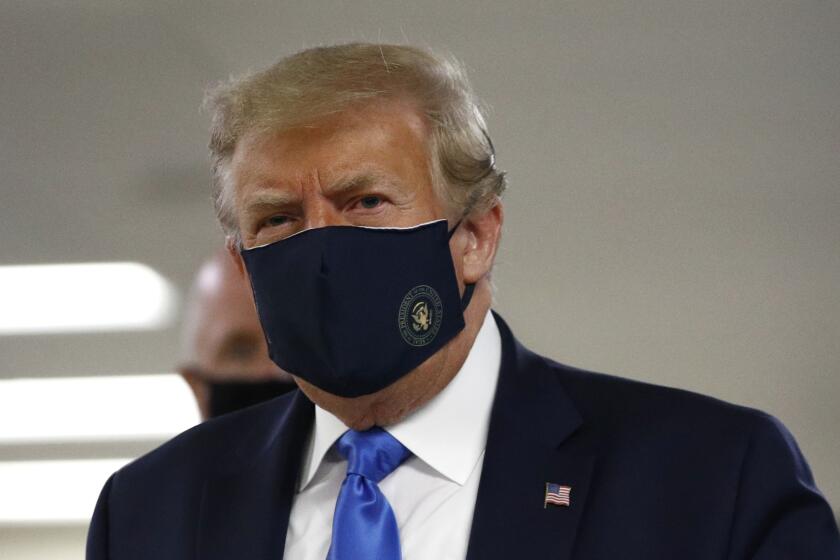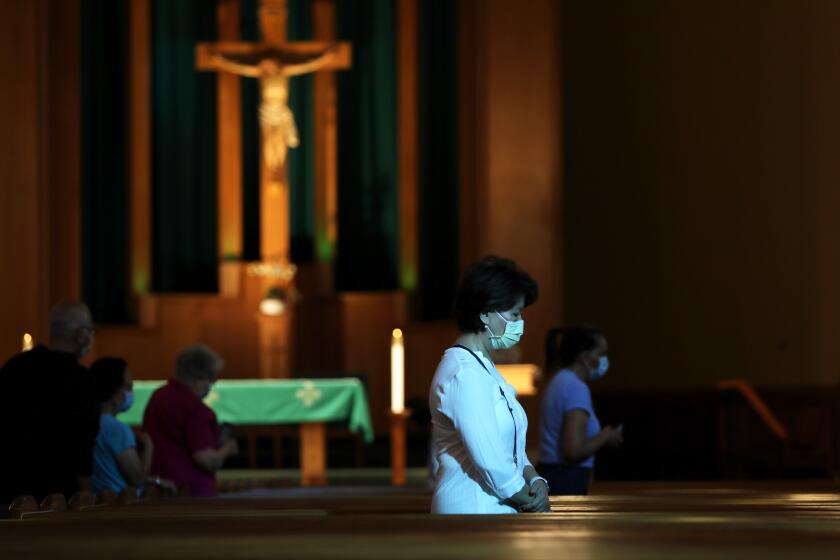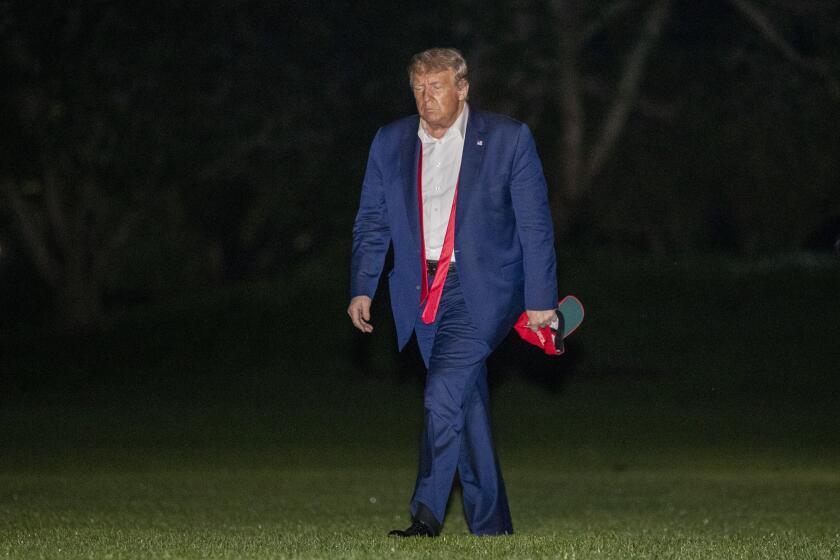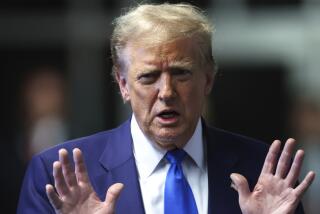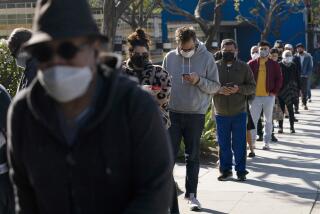The presidential cover-up, or how Trump went from shunning to wearing a mask
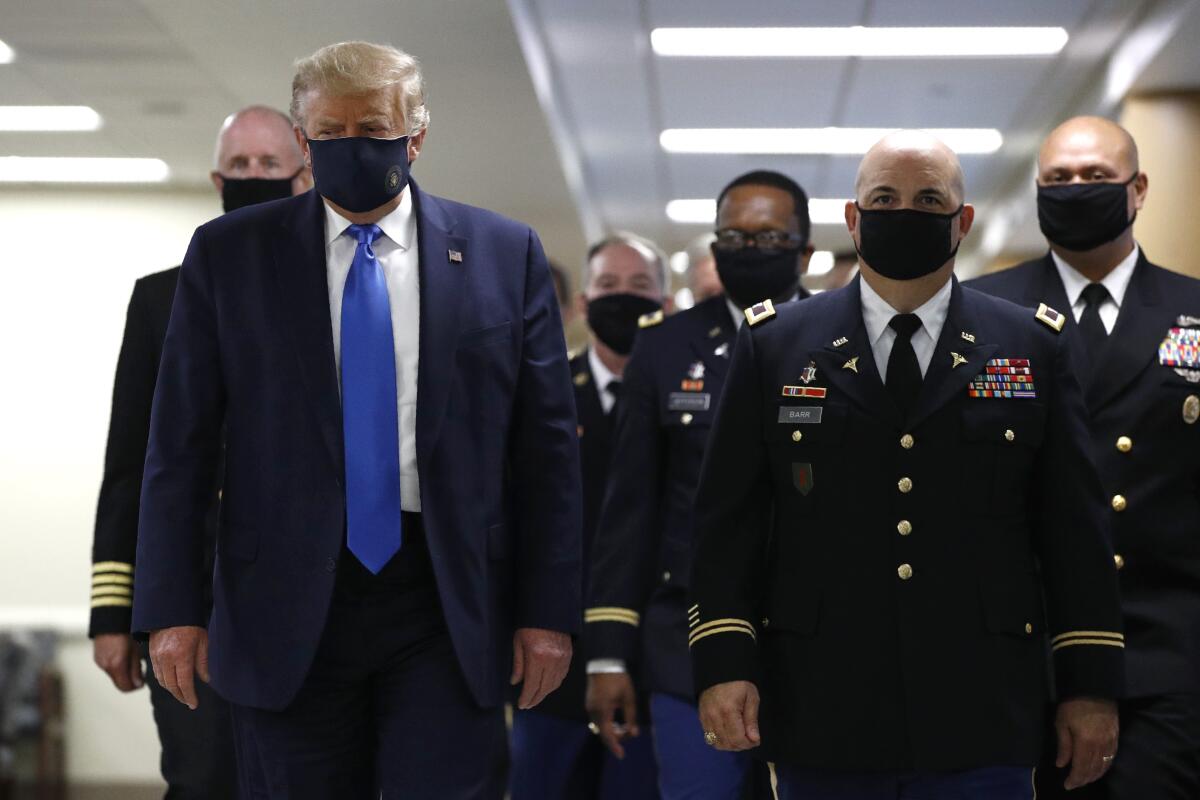
When President Trump wore a face mask in public for the first time this weekend, his supporters were exultant.
“Goodnight, Joe Biden,” tweeted Boris Epshteyn, a campaign advisor. “Game on,” declared Sebastian Gorka, an official who recently rejoined the administration. Campaign manager Brad Parscale simply tweeted a photo of the masked president touring Walter Reed National Military Medical Center in Bethesda, Md., with the familiar Trump slogan #AmericaFirst.
With all the crowing, you’d think Trump and his orbit had long seen wearing a mask as a no-brainer and political win. But Trump’s journey to don a mask is far more circuitous than what his allies portray.
So Trump wore a mask — what’s the big deal?
Well, up until this weekend, the president hadn’t worn a mask in public, despite increasing pressure to do so. Trump had forgone facial coverings at White House events, at his campaign rally in Tulsa, Okla., and at a Memorial Day commemoration where elderly veterans were present.
He did wear one while touring a mask factory in Arizona and a Ford plant manufacturing ventilators in Michigan, in keeping with the facilities’ policies, but he removed the covering when he was in view of the press. (NBC News obtained a behind-the-scenes photo of a masked Trump at the Michigan visit.)
That made his appearance at Walter Reed, wearing a navy mask with a gold presidential seal, a milestone, one he explained was due to the circumstances of his visit.
“I think when you’re in a hospital, especially in that particular setting, where you’re talking to a lot of soldiers and people that, in some cases, just got off the operating tables, I think it’s a great thing to wear a mask,” Trump said. “I’ve never been against masks, but I do believe they have a time and a place.”
As COVID-19 spiked across the U.S., Trump finally backed down and wore a face mask. Is it too late for him to ease the health crisis and culture wars?
Has Trump really ‘never been against masks’?
None of us can know his innermost thoughts, but the president has certainly sent out conflicting signals.
First, let’s recall that his administration, along with many other medical experts, originally downplayed the importance of masks, partially because of concerns that increased public demand could make it harder for healthcare professionals and other essential workers to get the equipment they needed. Dr. Anthony Fauci, the nation’s top infectious diseases expert, said in March that masks weren’t necessary — a claim that his critics, including close Trump allies, have recently revived to discredit him.
As knowledge about the new coronavirus improved, however, the advice from experts changed. By early April, the Centers for Disease Control and Prevention issued voluntary guidance to wear facial coverings when people could not physically distance.
Trump appeared unenthused about the suggestion. Speaking about the freshly issued guidelines, he declared: “This is voluntary. I don’t think I’m going to be doing it.”
He went on to explain his hesitation: “I don’t know, somehow, sitting in the Oval Office behind that beautiful Resolute Desk — the great Resolute Desk — I think wearing a face mask as I greet presidents, prime ministers, dictators, kings, queens, I don’t know. Somehow, I don’t see it for myself.”
Has he ever said wearing a mask was a bad thing?
Not explicitly. But he’s come close to implying that there is something strange or wimpy about wearing a mask.
Trump complained he couldn’t hear a masked reporter’s question during a May news conference and suggested the journalist was wearing one to be “politically correct.”
His most frequent pointed observations have been about his rival, Joe Biden. After the presumptive Democratic nominee was photographed wearing a face covering at a Memorial Day observance, Trump shared a tweet by former Fox News personality Brit Hume that knocked Biden’s masked appearance. The president later called Biden’s decision to wear a mask outside “unusual,” but also said he wasn’t criticizing the choice.
He has continued to bring up Biden’s mask-wearing, such as saying last week on Fox News that the former vice president has “got the largest mask I think I have ever seen. It covers up a big proportion of his face.”
Biden, for his part, called Trump an “absolute fool” for retweeting Hume’s criticism. And he was underwhelmed by the president’s change of heart over the weekend.
“It’s gotten bad enough that even Donald Trump finally decided to wear a mask in public. I’m glad he made the shift,” Biden said in a speech Tuesday. “But Mr. President, it’s not enough. We won’t be able to turn the corner and get American people back to work safely without presidential leadership.”
Mask-wearing in public has become an increasingly pressing and politicized issue as the economy reopens and cases surge across the nation.
Why does it matter if Trump wears a mask?
For months, the White House has offered a consistent explanation for why Trump doesn’t wear masks: He is tested for coronavirus daily, as are the people around him, making masks unnecessary.
That may be the case, but by declining to wear a mask, the president had passed up a chance to set an example for the country. Polls have found that Republicans are less likely to wear masks than Democrats or independent voters, and officials in conservative communities, where the virus is hitting hardest right now, have said that Trump helped seed suspicion about mask-wearing among his most ardent supporters.
But there are signs that public opinion, especially among Republicans, may be moving toward masks. An Axios/Ipsos survey on Tuesday found that nearly two-thirds of Americans cover their faces every time they leave the house. The biggest increase was among Republicans, 45% of whom say they wear a mask all the time — a 10-point jump from two weeks ago.
So will masks be the new status symbol for Trump fans?
Perhaps. The White House kept up its pro-mask messaging on Tuesday, with First Lady Melania Trump tweeting a picture of herself wearing a face covering.
But it may require seeing the president in a mask more than once to sway some of his skeptical fans.
Republican anti-Trump groups aim to convince just enough GOP voters that it’s OK to support a Democrat to oust this president.
More to Read
Get the L.A. Times Politics newsletter
Deeply reported insights into legislation, politics and policy from Sacramento, Washington and beyond. In your inbox three times per week.
You may occasionally receive promotional content from the Los Angeles Times.
